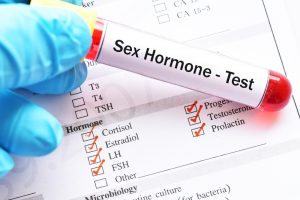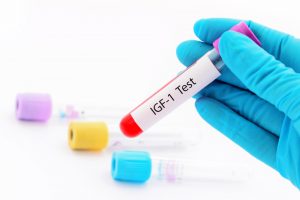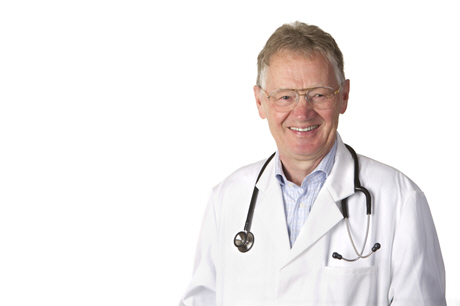Video Link: https://vimeo.com/291607412
Video Download: Hgh And Insulin The Primary Agents Of Energy Bio Availability
Video Stream: Hgh And Insulin The Primary Agents Of Energy Bio Availability
There are two hormones that are essential to providing the human body the working energy that it needs to function from day to day — Human Growth Hormone and Insulin.
Insulin is responsible for signaling to liver, fat, and muscle cells to absorb glucose from the bloodstream for energy utilization and storage. On the other hand, Human Growth Hormone is responsible for stimulating fat cells to release energy stores.
The human body operates at its best when hormones function and act in harmony.  Endocrinology is an incredibly complex field because our hormones have complicated primary, secondary, and ancillary effects, which all have an impact on the expression of other hormones.
Endocrinology is an incredibly complex field because our hormones have complicated primary, secondary, and ancillary effects, which all have an impact on the expression of other hormones.
The goal of this article is to provide more meaningful information regarding how Insulin and Human Growth Hormone work in tandem to meet the body's energy needs.
Furthermore, we will explain how exercise and nutrition impact the expression of these hormones.
Human Growth Hormone and Insulin -- Complementary Antagonists
While Insulin and HGH are both very important, they are ultimately opposing factors. When Insulin levels are high, Human Growth Hormone will be suppressed, and vice versa.
That isn't to say that one is good, and one is bad — they both play crucial roles based on what your body requires at a given moment in time. HGH is essential both for extracting energy from fat and for encouraging cellular metabolism and maintenance.
One reason why Intermittent Fasting is such an effective means of encouraging Hormone Balance and better health is that it stimulates the body to rely more on Human Growth Hormone during the period of fasting, giving the pancreas and various cells that respond to Insulin, time to recover from activation.
Men and women that are overweight are more likely to experience Insulin Resistance and Pre-Diabetes because the overwhelming reliance on Insulin overworks the pancreas and desensitizes cells' sensitivity to Insulin.
Factors Which Stimulate and Suppress HGH Production
HGH production is regulated upstream by the Hypothalamus. Physical activity, sleep, and low blood sugar all stimulates the hypothalamus to produce Growth Hormone-Releasing Hormone.
GH-RH is responsible for stimulating increased Human Growth  Hormone Production.
Hormone Production.
As there are factors which stimulate HGH Secretion, there are also influences which suppress the release of Growth Hormone.
A hormone known as Somatostatin is responsible for limiting the production of HGH, and it is influenced by the presence of glucose and cortisol in the bloodstream.
Glucose stimulates the production of Insulin and suppresses the production of HGH.
Cortisol and other stress hormones encourage the body to prepare for dealing with stress and slow down processes related to repair recovery and rebuilding.
Somatostatins will also be released in higher volume as HGH levels in the bloodstream increase, to cap Someatrophic activity. The body releases Human Growth Hormone in pulses, so action to suppress HGH release occurs quickly.
While we can manipulate Human Growth Hormone levels by how we eat and how we exercise, we produce the majority of HGH while we sleep, which is one of a litany of reasons why it's essential to get regular and restful sleep.
IGF-1 — The Heavy-Lifting HGH Metabolite
Most hormones operate in cycles and cascades. Human Growth Hormone is produced, stored, and released by Somatotrophs in the Pituitary.
While HGH does directly impact the function of many cells, it is primarily broken down into Growth Factors by the liver.
 One of the most potent metabolites of Human Growth Hormone is Insulin-Like Growth Factor-1.
One of the most potent metabolites of Human Growth Hormone is Insulin-Like Growth Factor-1.
IGF-1 is responsible for many of the anabolic effects of HGH, and also provides the body with energy when dietary energy supplies aren't enough to meet immediate physiological demands.
IGF-1's primary mission is to provide energy to the body when glucose from the diet isn't immediately available. Multiple forms of IGF-1 perform different duties, however.
For example, one variant — Mechano-Growth Factor (MGF) — is released in response to anaerobic exercises such as weight lifting or High-Intensity Interval Training. MGF strengthens muscle and contributes heavily to muscle tone.
Exercise and Sleep Stimulate HGH Production
As we mentioned above, vigorous physical activity contributes to the release of Human Growth Hormone by the pituitary.
One of the reasons why HGH levels increase during sleep is because you're going for an extended period without food. One way to encourage  improved HGH function during sleep is to have dinner at least two or three hours before rest.
improved HGH function during sleep is to have dinner at least two or three hours before rest.
Ideally, you should be satiated, but not full when you go to sleep.
Throughout the night, your body will release multiple bursts of Human Growth Hormone.
As the night goes on and it gets closer to the time to wake up, your body slowly increases Cortisol levels. Cortisol is released to stimulate you to wake up and start your day.
If you're looking to drop pounds or reduce your dependence on Insulin, one way that you can encourage increased HGH Production, burn more calories, and safeguard the function of the pancreas is to delay breakfast.
You may be hungry, but your body has more than enough energy available when you wake up in the morning.
By waiting a couple of hours to eat your first meal, you rely more heavily on Human Growth Hormone and IGF-1, which provides you with enhanced benefits from improved HGH Balance while also warding off Insulin Resistance and helping you lose weight!
 If you're interested in burning fat and encouraging increased muscle mass, you should pair these strategies with a diet that limits carbohydrates and relies more heavily on fat and protein for sustenance.
If you're interested in burning fat and encouraging increased muscle mass, you should pair these strategies with a diet that limits carbohydrates and relies more heavily on fat and protein for sustenance.
Furthermore, you should adopt an exercise routine that encourages HGH Production, promoting the body to utilize adipose fat stores to improve your strength and muscle mass!
Reference
The relative roles of growth hormone and IGF-1 in controlling insulin sensitivity
Contact Us For A Fast And Professional Response

- The Other Aspect of Dieting – Removing Chronic Stressors From Your Life [Last Updated On: February 9th, 2025] [Originally Added On: September 9th, 2020]
- The Flaws of Six Popular Diets [Last Updated On: October 20th, 2024] [Originally Added On: September 20th, 2020]
- Purchase Sermorelin Acetate Injections Online [Last Updated On: February 8th, 2025] [Originally Added On: September 23rd, 2020]
- Eating Right On a Low-Glycemic Diet [Last Updated On: September 2nd, 2024] [Originally Added On: October 1st, 2020]
- The Benefits of Intermittent Fasting [Last Updated On: September 28th, 2024] [Originally Added On: October 2nd, 2020]
- Eat Healthier with White Flour Alternatives [Last Updated On: November 18th, 2024] [Originally Added On: October 3rd, 2020]
- Ten Common Contributors to Obesity that Make it Hard to Lose Weight [Last Updated On: March 5th, 2025] [Originally Added On: October 4th, 2020]
- How Can Sermorelin Enhance Your Life? Losing Weight and Battling Premature Aging With Sermorelin [Last Updated On: April 1st, 2025] [Originally Added On: October 5th, 2020]
- Benefits and Risks of HGH Therapy: 2018 Update [Last Updated On: April 15th, 2025] [Originally Added On: October 6th, 2020]
- Have You Heard About the 21st Century Breakthroughs in Hormone Replacement Therapy? [Last Updated On: December 25th, 2024] [Originally Added On: October 7th, 2020]
- The Importance of Omega-3 Fatty Acids [Last Updated On: October 17th, 2024] [Originally Added On: October 8th, 2020]
- The Relationship Among Testosterone, Obesity, and Alzheimer's Disease [Last Updated On: November 17th, 2024] [Originally Added On: October 9th, 2020]
- Major Alzheimer's Risk To Continued Sleep Deprivation [Last Updated On: September 11th, 2024] [Originally Added On: October 10th, 2020]
- Should You Choose the Ketogenic Diet? [Last Updated On: September 19th, 2024] [Originally Added On: October 13th, 2020]
- How Can Women Maximize HGH Production? [Last Updated On: April 5th, 2025] [Originally Added On: October 18th, 2020]
- Micro Nutrients Versus Macro Nutrients [Last Updated On: January 11th, 2025] [Originally Added On: November 4th, 2020]
- Some of the most effective Weight Loss Injection and Diet Injection Programs [Last Updated On: October 24th, 2024] [Originally Added On: November 6th, 2020]
- Information About Chelation Therapy [Last Updated On: April 9th, 2025] [Originally Added On: November 9th, 2020]
- Seven Ways to Help You Burn Calories Faster and More Effectively [Last Updated On: March 28th, 2025] [Originally Added On: January 21st, 2021]
- Don’t Eat These Foods When Taking Sermorelin Acetate for HGH Deficiency [Last Updated On: February 14th, 2025] [Originally Added On: February 3rd, 2021]
- Understanding Aerobic vs. Anaerobic Exercise [Last Updated On: September 25th, 2024] [Originally Added On: March 4th, 2021]
- Physician’s Fact Sheet: Vitamin E [Last Updated On: January 10th, 2025] [Originally Added On: March 8th, 2021]
- Naturally Losing Weight with Lifestyle Changes Keeps the Weight Off for Good [Last Updated On: September 16th, 2024] [Originally Added On: March 27th, 2021]
- The Health Benefits of the Amazing Strawberry [Last Updated On: February 9th, 2025] [Originally Added On: May 8th, 2021]
- Need Better Sleep? Try Eating Pistachios Before Bed! [Last Updated On: January 21st, 2025] [Originally Added On: February 16th, 2022]
- Three Kinds of Body Fat and How They Impact Your Health [Last Updated On: November 2nd, 2024] [Originally Added On: April 12th, 2022]
- Pistachios: You’re Not Nuts [Last Updated On: January 4th, 2025] [Originally Added On: August 3rd, 2022]
- 7 Surprising Things That Mess With Your Hormones [Last Updated On: February 26th, 2025] [Originally Added On: September 5th, 2022]
- Adding Cranberries to Your Diet can Really Add Zest – and Health – to Your Life. [Last Updated On: December 30th, 2024] [Originally Added On: January 10th, 2023]
- Raspberries – Delicious Portal to Shining Good Health [Last Updated On: January 1st, 2025] [Originally Added On: January 18th, 2023]
- Study Shows Cialis and Viagra Users have 25% Lower Early Death Rates [Last Updated On: March 14th, 2025] [Originally Added On: February 19th, 2023]
- Introduction: Understanding the Multifaceted Nature of Obesity [Last Updated On: March 2nd, 2025] [Originally Added On: March 2nd, 2025]

















